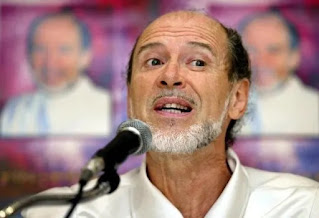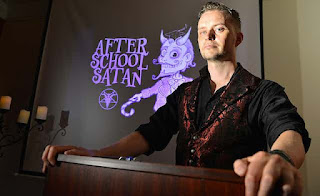Spiritual leader Jagadguru Rambhadracharya has challenged Premanand Maharaj over his knowledge of Sanskrit. In an interview that went viral on social media, Jagadguru Rambhadracharya also said he does not consider Premanand Maharaj a miraculous saint. A viral clip shows Rambhadracharya giving Premanand Maharaj an open challenge and saying that if he is really miraculous, then he should come in front of him and speak in Sanskrit. When asked about Premanand Maharaj, Jagadguru Rambhadracharya told journalist Shubhankar Mishra, "There is no miracle. If there is any miracle, then I challenge Premanand Maharaj to speak even one word of Sanskrit in front of me or explain the meaning of the Sanskrit shlokas that I have said. Today I am openly saying that he is like my child. It is a miracle that he knows the scriptures. He is living on dialysis." As the video moves further, Jagadguru Rambhadracharya says that he considers Premanand Maharaj like his child. "I am neither calling him a scholar nor a miracle worker. Such popularity lasts only for a few days. However, saying that this is a miracle is not acceptable to me. Sing bhajans and read and write," Jagadguru Rambhadracharya added.
"The Justice Department said Thursday it will seek the death penalty against a member of the cultlike Zizians group accused of killing a U.S. Border Patrol agent in Vermont in the latest Trump administration push for more federal executions.
Teresa Youngblut, 21, of Seattle, is among a group of radical computer scientists focused on veganism, gender identity and artificial intelligence who have been linked to six killings in three states. She rented a house in rural Chatham County raided in February by FBI agents.
She's accused of fatally shooting agent David Maland on Jan. 20, the same day President Donald Trump was inaugurated and signed a sweeping executive order lifting the moratorium on federal executions.
Youngblut initially was charged with using a deadly weapon against law enforcement and discharging a firearm during an assault with a deadly weapon. But the Trump administration signaled early on that more serious charges were coming, and a new indictment released Thursday charged her with murder of a federal law enforcement agent, assaulting other agents with a deadly weapon and related firearms offenses.
"We will not stand for such attacks on the men and women who protect our communities and borders," Acting Assistant Attorney General Matthew Galeotti said in a press release."
"Last year, Utah lawmakers passed the Religious Freedom Restoration Act, which gives people more power to challenge the government if it interferes with their religious beliefs.
Religious freedom is, in many ways, the backbone of the major religion in Utah — the Church of Jesus Christ of Latter-day Saints — and the Republican-sponsored measure passed easily.
But that law is being put to the test in the courts by an unexpected group — a very small religion that's been targeted by law enforcement for using psychedelic drugs as part of its practices. The religion is called Singularism.
In 2023, police carried out a warrant at its Provo headquarters, seizing its sacramental psilocybin and, later, hitting its founder with criminal charges. Singularism founder Bridger Jensen is suing, and citing this religious freedom law as his argument."
News, Education, Intervention, Recovery






